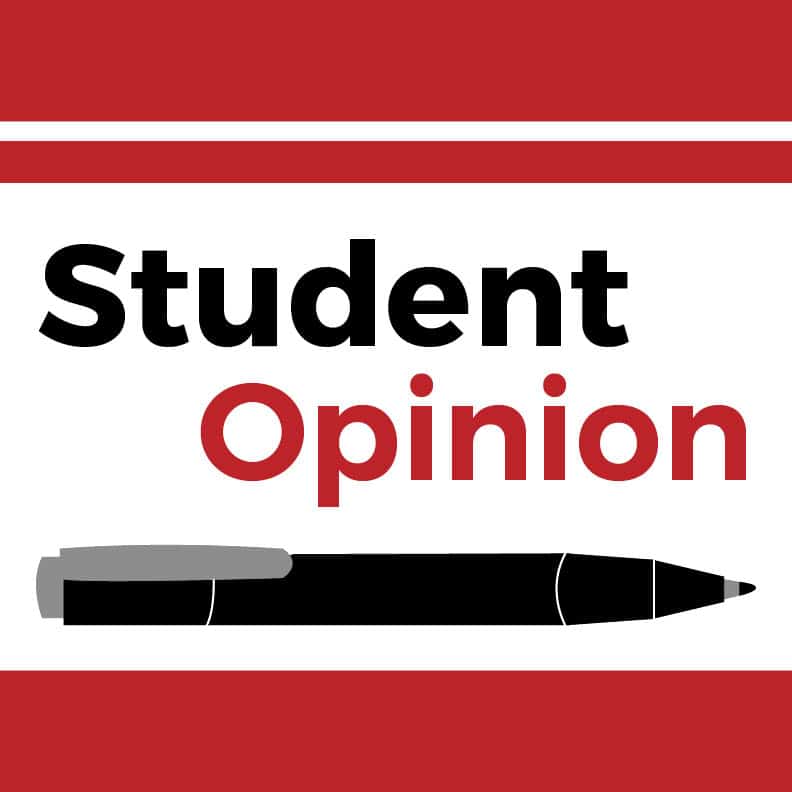By Caroline Miller–
The prolific “Trash Island” in the Pacific Ocean has become an increasing and alarming environmental issue over the past several years. The collections of debris in various parts of the marine waters resemble that of an island because of the large amounts of non-degradable trash that have accumulated in the ocean. While this concern may not seem relevant to you as a student living in Louisville, Kentucky, far from the Pacific Ocean, there’s still a high chance that you’re contributing to the waste that’s harming the environment and its plants and animals.
Just the other day I was getting a coffee at Einstein’s Brother Bagels, and I saw a pretty disturbing sight. Prior to pouring her vanilla hazelnut cup of goodness, a woman accidentally grabbed additional coffee cup sleeves. Rather than putting back the three sleeves for someone else to use, she threw it away. Yes, you heard this right, threw it away—in the trash can. First of all, there was no reason to dispose of these. The next person who came along to pour his or her cup of coffee, could have easily used one of these sleeves that was touched for a mere five seconds. Secondly, if she was going to dispose of a cardboard sleeve, how about using the designated area, a.k.a the recycling bin?
I see people doing common things like this all the time across campus. It’s time for coffee lovers, Chick-fil-a fanatics, and other individuals who buy food or beverages in disposable containers to change their current habits. Food and beverages are easily accessible across campus as is the ability to dispose these containers and all of the other side items such as napkins and utensils that come with a meal. The issue lies, not in the disposability of cardboard, plastic, metals, and other materials but, rather, in the increasing usage of these items along with their improper disposal.
Our campus has both recycling bins and trash cans paired together, which are typically located within feet of each other. It is so easy to properly dispose of whatever is in your hands and call it a day. You may know that there are specific items that can be recycled which include cardboard, paper, plastic, glass, and metal. However, not all plastics or metals are treated equally. The list is endless of what is and is not recyclable. Here is where I urge you to start educating yourself on this topic. A great place to start is with the City of Louisville’s website at : http://: https://louisvilleky.gov/government/public-works/recyclable-materials
Campus also calls for sustainable actions in that here is a huge waste in using simply too much. It is time to start questioning individual habits. Is it really so hard to not choose so many disposable items in the first place? Is it, then, that difficult to properly dispense these items? It comes down to practicing being more environmentally friendly. You can carry a reusable mug with you or stop using plastic bags. All of these new habits will help to reduce your individual waste that is piling up in the Pacific Ocean.
Sustainable practices are only require a simple change of habit that, overtime, will become easier for you to practice. I have personally started to drink coffee with reusable mugs and use less plastic wear when I can. I also reuse plastic bags if I have to use them and I have been more conscience of disposing items in proper areas. All of these things I’ve picked up, are things anyone do themselves. You can even visit the Garden Commons, located at the Cultural Center, to compost any materials you may have accumulated.
If a typical college girl like me can alter my ways to be more sustainable, so can you. I believe that changing your ways of thinking as well as your effort towards trying to use less and dispose of waste properly, is not a difficult task. It is time for a habitual change across campus. It is time to start asking, “What’s up with all the waste?”






